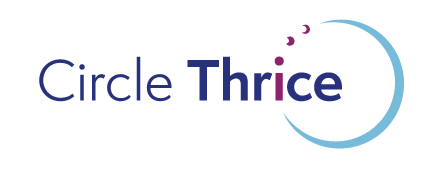Note: Big update to the Index Page…
One really common mistake people make in projects is confusing goals and tasks. It’s such a common mistake that I recently slipped up on this myself during my last personal project (Project Ivy).
- A goal is an end result that you want to accomplish.
- A task is a thing you will do to get to that end result.
 |
| Goal: stop making pretentious and cheesy PowerPoint slides |
First issue: mistaking tasks for goals
When I started my project (about this time last year actually) I listed “get more outdoor exercise” as a goal. Certainly, getting more exercise isn’t a bad idea, but if you think about it, it’s not really a goal. The end result I wanted wasn’t “more outdoor exercise” — that was just a means to an end. Really my goals were:
- Be more physically fit (which in itself is kind of a crappy goal — more on this later)
- Spend more time outdoors
- It limits your options. If you set your end result to be 100 push-ups then what happens if you tear a rotator cuff or need carpal tunnel surgery? If your goal however is improved strength or fitness, there are lots of ways to get that. This means you can be more flexible throughout the project. When the weather got really bad, I wouldn’t go out… which meant pretty much no exercise. You’d think I’d know better, but in the day to day of life (as opposed to the 10k view of project planning), I didn’t. I could have easily done yoga or cardio in my own living room. But by setting the goal wrong there was this tendency to be all or nothing.
- It can reduce enthusiasm/motivation. If you make your end goal “green smoothie every morning” well, by month six the very thought of a green smoothie may want to make you want to hurl and go back to donuts. Eating healthy (or even eating healthy in the morning) is a better goal that will allow you to keep trying new things to keep yourself going. Maybe you switch to plain yogurt with fruit or chia seed pudding or a scrambled egg / spinach wrap.
- It’s way less agile. One of my Project Ivy goals was DO MORE MAGIC. And this, unlike my exercise goal is a real goal because that’s exactly the end result I wanted (a life filled with magic and more kinds of magic). At the start of the project I had some tasks lined up for this goal. By the end of the year, I realized that I did almost none of those tasks… but I still met my goal. How? Because Gordon launched his membership option and I have been up to my ears in all kinds of magic ever since. If I made my goal “finish this specific course or work through this one book” I might not have jumped on the new opportunity when I had it. It’s easy to think “well, I set this goal and need to have the will power to stick with it” when that’s not really the goal at all! This is super important in our very chaos-driven, unknown-unknowns kind of environment.
- It limits your magic. If your goal is 100 pushups, well all you can really do is get down there and start doing 100 pushups. But if your goal is physical fitness, well you can do tons of different kinds of things to help make that happen — including lots of magic. Sure, you have to do mundane things as well (like those pushups) but you can also petition spirits, make charms, do sigils, and so forth. You suddenly have tons of ways to leverage magic to reach your goal. If you ever feel like there no magic you can do to help you reach a goal, you may have a task on your hands instead. Because magic’s not going to get your ass off the couch and on a walk (task) but it can help you end up more fit than you started.
Second issue: mistaking goals for tasks
This confusion of tasks and goals happens the other way around too. This is when you have a task on your list that’s really a goal. For example, have you ever had a task to “eat better” or “lose weight”? These are goals, not tasks — they tell you the what, not the how. Tasks need to be tiny, actionable steps you can take to get to the goal.
This one is much simpler to understand: since goals aren’t really doable (they are the destination, not the journey) you just never end up doing anything to accomplish them. And yet we think in terms of goals all the time: “We really need to get a new car,” “I wish I wasn’t so out of shape,” “I have to get out of this fucking school/house/marriage/friendship/town.”
Thinking of a goal, stating a goal, announcing a goal, putting a goal on your to do list… has almost never, ever actually accomplished the goal. You have to do things — tasks, sometimes lots of tasks — to make your goals happen. Sometimes those tasks are mundane and sometimes magical, but with ongoing management, they will get you closer to your goal.
 |
| I covet this mug like woah |


